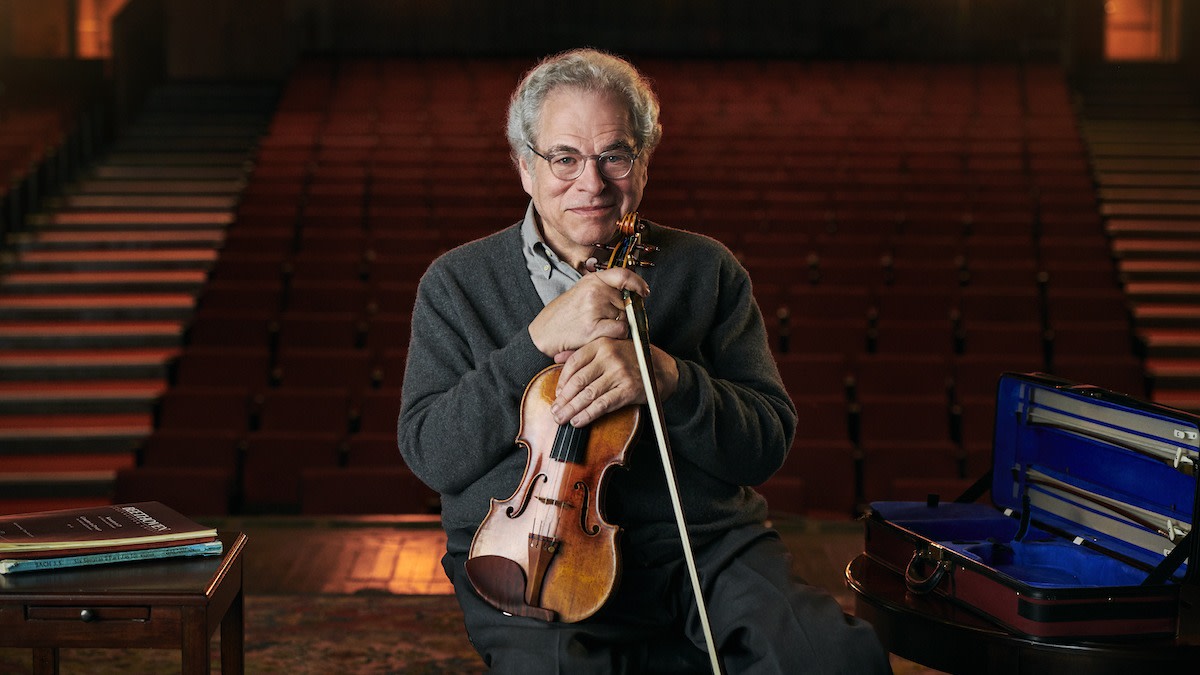5 Tips to Overcome Stage Fright With Advice From Itzhak Perlman
Written by MasterClass
Last updated: Sep 24, 2021 • 3 min read
Even the world’s greatest performers get nervous—some famously so. From Barbra Streisand to Adele to Laurence Olivier, some of the most commanding stage performers can actually be a wreck when they’re waiting in the wings. Needless to say, these artists do not let performance anxiety or stage fright derail them once they are in front of an audience.
Here are some insights on overcoming stage fright, particularly for a performing musician.
Learn From the Best
What Is Stage Fright and Where Does It Come From?
Stage fright, a colloquial name for performance anxiety, can impact any performer at any time, regardless of skill level or experience. There is no single cause of stage fright. However, stage fright is most commonly the product of two things:
- Social anxiety. Some people just don’t like to perform in front of others. This can manifest as a fear of public speaking, emotional jitters, or physical symptoms like dry mouth, sweaty palms, shaking hands, an inability to make eye contact, and even vomiting. In some cases, a performer may actually have a diagnosable anxiety disorder—but even artists with a diagnosed condition can go on to have fulfilling artistic careers.
- Lack of preparation. Some performers lack sufficient self-confidence because they haven’t adequately prepared. They may not realize that even top virtuosos, whose performances appear almost effortless, have rehearsed for untold numbers of hours before they step into the spotlight.
3 Tips to Overcome Stage Fright
To overcome performance anxiety and stage fright, you must have worked through every worst-case scenario at home before you encounter these situations on stage during an actual performance.
- 1. Practice your performance at home in front of a mirror. Think of things that might go wrong, and practice working out solutions to those situations.
- 2. This way, even if you run into a truly tricky situation, you’ll have the confidence and self-esteem that comes with knowing that you’ve already gone through every possible scenario and you’re ready for anything that comes your way.
- 3. If you’ve prepared more than ever before, and you’re still seized by stage fright, just take a deep breath and remember that how many famous performers go on stage feeling the same self-doubt you’re feeling right now—and yet, they still crush it. That means you can, too.
How Does Stage Fright Manifest Itself in Violinists?
There are a few ways that stage fright and nerves can affect a violin player. Stage fright can manifest itself as:
- Cold and clammy hands
- Shaking bow arm
- Holding your breath; shortness of breath
- Pressing the left fingers too hard into the fingerboard
- Distorted awareness of tempo—playing too quickly and thinking everyone else is behind
- Being overly judgmental about mistakes and missed details
- Too much bow speed; superficial connection of bow
- Listening in a different way, the feeling that things sound alarmingly different or wrong
- Feeling hyper-aware of all the details
- Being nervous in a situation you didn’t think would make you nervous
- Being nervous despite playing for a small group
Itzhak Perlman’s Guide to Overcoming Stage Fright for Violinists
As perhaps the world’s most renowned living violinist, Itzhak Perlman understands what it’s like to thrive at the highest levels of music. But he’s also familiar with the self-doubt that consumes all musicians, particularly violinists.
Below, Perlman offers some advice for violinists dealing with nerves and stage fright. Most of these methods involve expunging negative thoughts and doing more performance preparation than you ever have in your life.
- 1. When you learn the piece, keep fingerings and bowings comfortable and consistent.
- 2. Go through the piece, and identify problem spots.
- 3. Practice technical problems slowly and thoroughly until they feel worked out.
- 4. Connect with the music in the practice room so you can later do so on stage—this is extremely important.
- 5. Find as many opportunities as you can to perform and make yourself nervous so you can get familiar with the feeling.
Want to Become a Better Violinist?
Whether you’re a beginner violin player or have dreams of playing in a symphony orchestra, becoming a professional classical musician takes patience and perseverance. No one knows this better than Itzhak Perlman, the world’s reigning virtuoso violin player. In Itzhak Perlman’s MasterClass on the violin, the beloved Juilliard instructor shares his fundamental violin techniques and practice strategies.
Want to become a better musician? The MasterClass Annual Membership provides exclusive video lessons from master musicians, including Itzhak Perlman, Herbie Hancock, Carlos Santana, Tom Morello, and more.
